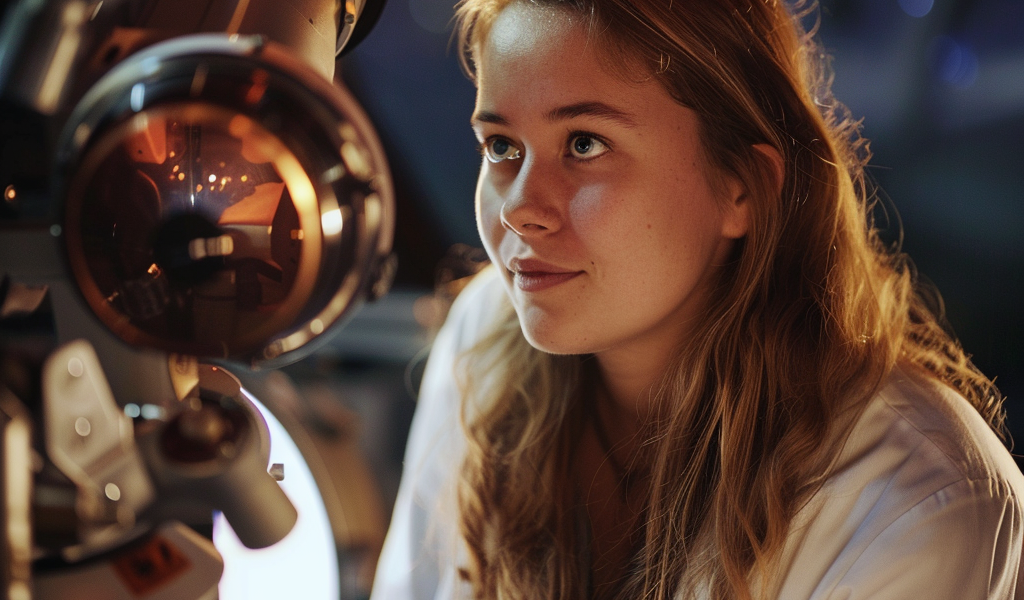Astrophysicist Ylva Götberg, a promising young talent at the Institute of Science and Technology Austria (ISTA), has recently been recognized on the prestigious 2024 TIME100 Next list. This list celebrates emerging leaders across various fields, highlighting those who are poised to shape the future of business, entertainment, politics, science, and more.
Joining ISTA in 2023, Götberg has quickly established herself as a vital member of the faculty, particularly in the realm of astrophysics. As one of the first astrophysicists at the institute, she has played a crucial role in laying the foundation for this discipline within the rapidly evolving academic environment at ISTA. Her research primarily focuses on the evolution of massive binary stars, a fascinating area where pairs of stars engage in a complex dance that can lead to dramatic cosmic events.
Binary stars, which are two stars orbiting each other, can interact in ways that significantly impact their evolution. Götberg’s work delves into how these stars can strip away each other’s outer layers or even merge into one another, resulting in spectacular phenomena such as supernovae. Her innovative approach combines teamwork and collaboration, emphasizing the importance of diversity and mutual respect within her research group. Götberg aims to foster an environment that allows her team members to thrive, recognizing that young researchers come from diverse backgrounds and possess varying goals.
In a groundbreaking study published in the journal Science, Götberg made headlines with her discovery of a population of “missing stars.” These stars are linked to a type of supernova that has puzzled astrophysicists for years due to their elusive nature. Prior to Götberg’s research, these hydrogen-poor supernovae seemed to appear without explanation. Her findings provide crucial insights into these stellar explosions, enhancing our understanding of the life cycles of stars.
In addition to her research on binary stars and supernovae, Götberg is also involved in an ambitious international collaboration that is developing NASA’s new ultraviolet (UV) space telescope, known as UVEX. Scheduled for launch in 2030, UVEX aims to fill a significant gap in the collection of ultraviolet data, which is essential for studying the evolution of galaxies and stars. This telescope will serve as a vital resource for the scientific community, providing a comprehensive dataset of UV light across the entire sky.
Götberg’s academic journey began with her PhD from the University of Amsterdam, which she completed in 2019. Her experience includes a notable role with NASA’s Hubble Space Telescope, where she contributed to the advancement of astrophysical research. At ISTA, she continues to push the boundaries of scientific inquiry, driven by a passion for exploring the universe and understanding the fundamental processes that govern stellar evolution.
As a young group leader, Götberg embodies the spirit of innovation and collaboration that is essential for advancing scientific knowledge. Her recognition on the TIME100 Next list not only highlights her individual achievements but also underscores the importance of nurturing the next generation of leaders in science. By fostering a culture of inclusivity and support, Götberg is paving the way for future researchers to explore the mysteries of the cosmos.
With her groundbreaking research and commitment to collaboration, Ylva Götberg is undoubtedly a rising star in the field of astrophysics, and her contributions will continue to shape our understanding of the universe for years to come.





